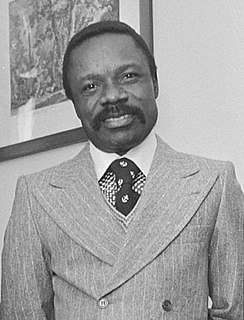A Quote by Taslima Nasrin
The focus of my research is how secular movements originated in West Asian countries and subsequently changed to pan-Islamic movements. The role of Western countries in this aspect is also a part of the research.
Related Quotes
Movements such as the Pan-Germanic, Pan-Islamic, or Pan-Negro justify themselves on the basis of their common language, or their common religion, or their color. But since the undefined masses involved in these movements lack the essential and real unity of background or community of purpose, they become a grave danger to general peace.
If we are going to talk about the most recent of the "Indignados" movements in several countries of the world, including Europe, those are social movements but eventually they will evolve into political movements. This will happen because the traditional bourgeois parties have lost credibility after being the main political influence in most countries of Latin-America and Europe in the last 50 or 60 years.
When you start to do research into gorillas or any kind of apes, if you're going to play them, that's one of the biggest misconceptions. And when I did Kong, you're not doing gorilla movements, you're not doing ape movements, you're looking for a personality. It's like saying okay I'm going to do human movements.
Some people say that the West has a cruel history. These people also may see the achievements of Western countries - in terms of the economy, education, health, and social achievements - as a result of exploitation of poorer countries, including Arab countries. Western nations get rich by using resources such as Arab oil. Meanwhile, the countries supplying them raw materials remain poor. Due to such injustices, jealousies are created.
Venezuela, Bolivia and Ecuador lived through times of cruel and ruthless capitalism where the workers, the masses of the population, saw themselves living in a precarious state of employment and subsistence conditions. The impact of this reality took hold and impacted the evolution of the social situation of those countries and even though that produced movements that were not exactly political movements but social movements.
I have done research about people who think they're doing movements and people - like Madonna and professional dancers - who are actually 'performing' movements. The people who can connect and perform during their workout get results way above and beyond the people who are just going through the motions.
What's more important is that we talk about movements; change happens through movements. The movement to end slavery, the movement to bring justice for those who have been left out of the system, movements to include women, movements around sexual preference - all these movements brought about change.
Those in the west who dismiss the repressiveness of laws against women in countries like Iran, no matter how benign their intentions, present a condescending view not just of the religion but also of women living in Muslim majority countries, as if the desire for choice and happiness is the monopoly of women in the west.





































